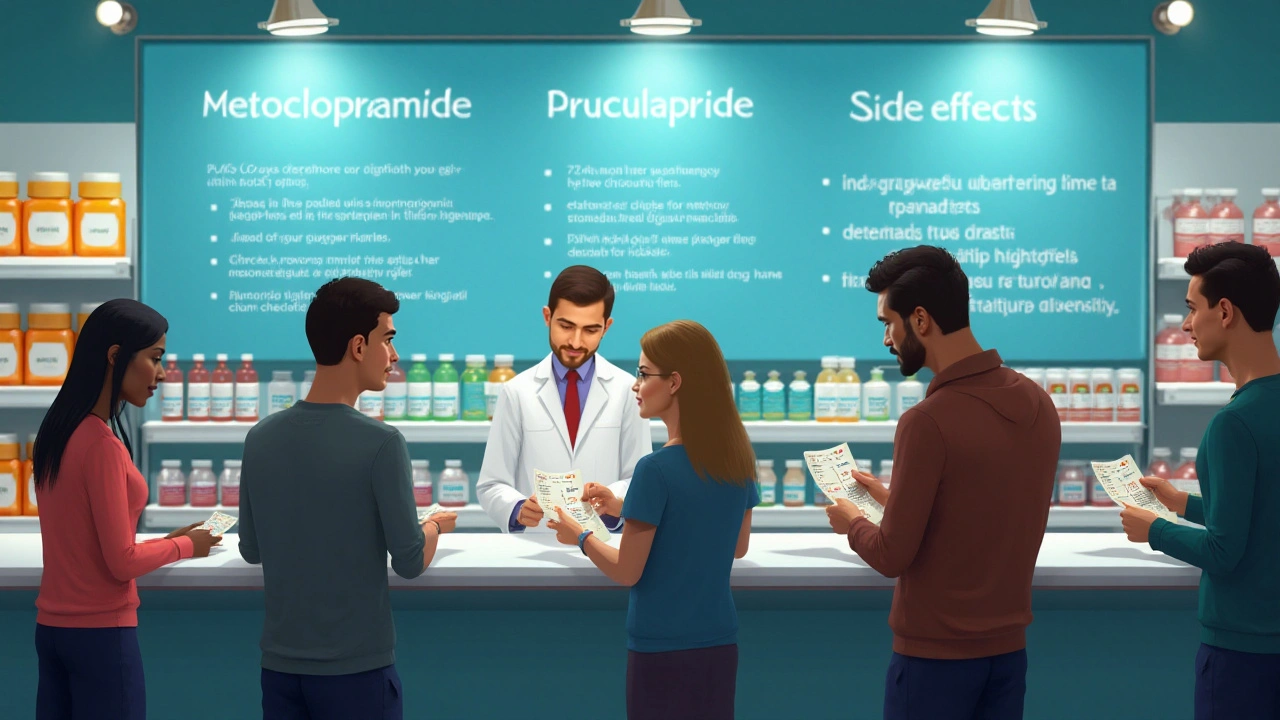Digestive relief: fast, practical fixes for common stomach problems
Stomach upset hits at the worst times. Whether it’s heartburn after dinner, sudden nausea, loose stools, or constipation, you want simple steps that actually work. Below I’ll give clear, practical tips you can use right away, plus what to avoid and when you should see a doctor.
Quick fixes you can try now
Heartburn/acid reflux: Sip a glass of water, avoid lying down for two hours after eating, and skip spicy, fatty, and citrus foods. Over-the-counter antacids (Tums, Maalox) work for quick relief. H2 blockers (famotidine) and proton pump inhibitors (PPIs) like pantoprazole (Protonix) help longer-term, but don’t start a long course without checking with your clinician — PPIs can be useful but carry risks if used forever.
Nausea: Try ginger tea, clear broth, or plain crackers. Take small sips of water or an oral rehydration solution if you can’t keep food down. Wrist acupressure bands (sea‑bands) help some people, and anti-nausea meds (prescription ondansetron or metoclopramide) are options when nausea is severe or persistent.
Diarrhea: Hydration is the priority. Use an oral rehydration solution or diluted sports drink to replace electrolytes. Eat bland foods (rice, bananas, applesauce, toast — the BRAT approach) and avoid dairy, caffeine, and high‑fat food until things settle. Over-the-counter loperamide can stop symptoms for non-bloody, non‑fever cases; don’t use it with bloody stools or high fever.
Constipation: Increase fiber gradually (oats, beans, fruits), drink more water, and move your body — a 20‑minute walk can trigger a bowel movement. For short-term relief, osmotic laxatives (polyethylene glycol) are gentle and effective. Avoid stimulant laxatives daily unless directed by a doctor.
When to see a doctor
Head to urgent care or call your doctor if you have severe belly pain, high fever, blood in vomit or stool, unexplained weight loss, or vomiting that won’t stop. Also seek help if heartburn won’t improve with OTC meds for two weeks or if you need antacids every day. These can signal an infection, ulcer, gallbladder problem, or other issues that need tests or prescription treatment.
Some situations need specific care: persistent reflux may need testing and a tailored plan (diet changes, prescription PPIs for a defined period). Recurrent diarrhea after antibiotics may respond to probiotics or require testing for C. difficile. Acute cholecystitis (severe right‑upper‑abdominal pain and fever) often needs IV antibiotics and surgical evaluation.
Small changes prevent many problems: eat smaller meals, avoid late-night heavy dinners, cut or limit trigger foods, stay hydrated, and keep a food-and-symptom note for a week to spot patterns. If you’re unsure about a medication or an online source for a prescription, check with a licensed clinician or pharmacist first.
Use these tips to feel better faster. If symptoms persist or worsen, get professional care — that’s the quickest path back to normal.

Exploring 9 Effective Alternatives to Motilium in 2025 for Digestive Relief
This article delves into nine alternatives to Motilium available in 2025, offering insights into their usage, benefits, and potential drawbacks. As digestive issues continue to challenge many patients, understanding different treatment options is crucial. From medications like Metoclopramide and Prucalopride to innovative procedures like Gastric Electrical Stimulation, the choices are varied. Each option is ideally suited to specific symptoms and conditions, helping patients make informed decisions in managing their digestive health.
read more
